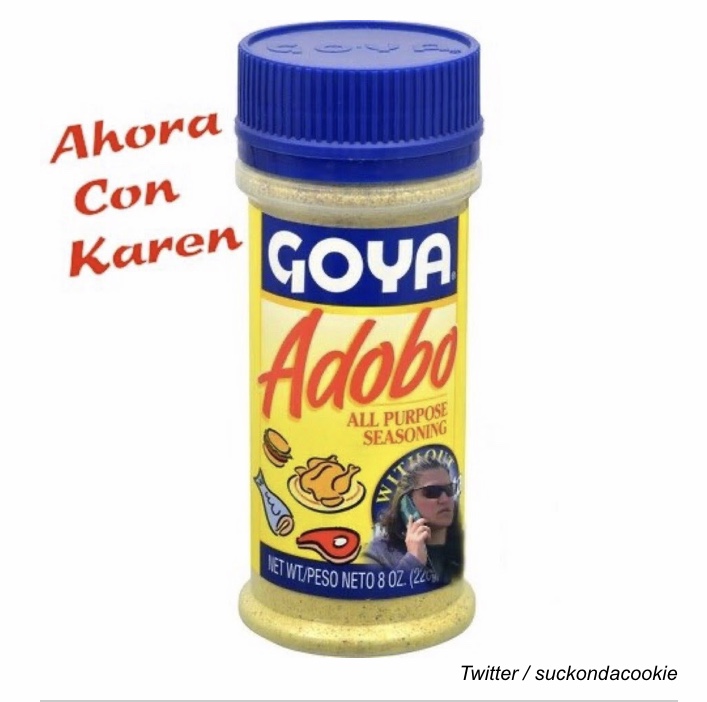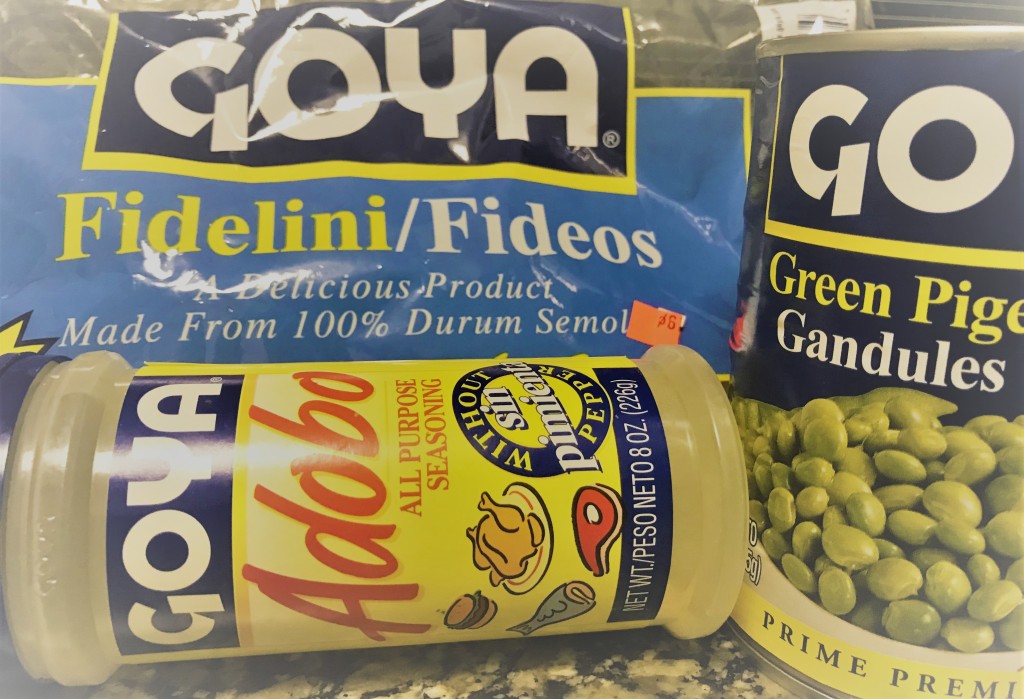“We’re all truly blessed at the same time to have a leader like President Trump, who is a builder. And so we have an incredible builder. And we pray. We pray for our leadership, our president, and we pray for our country, that we will continue to prosper and to grow.”
(NYT, 7/10/20)
Such were the words of Bob Unanue, the president of Goya Foods, as he stood beside President Trump, Thursday, July 9th, at the White House lawn. This statement has caused outrage among a segment of the Latin American community, the loyal customers behind the Unanue’s success. Unanue has refused to apologize, claiming freedom of speech, which he does have, even if we do not agree with his view of what constitutes a “blessing” …

Unanue is not alone. Latino Republicans, of course, backed him up, along with conservative media commentators, who as expected, spun the issue as one of a liberal “woke” mob. Some, further praisedd the company, an American company after all, for its donations and help to the community. The type of kindness and philanthropy that makes good PR and gets written off come tax season.
For many of us, the Goya Foods logo came to be equated with the home left behind. Prudencio Unanue, a Spanish immigrant to New York City via Puerto Rico, first established the company in 1928 to connect Spanish, and later Cuban and Puerto Rican migrants to their foods. As a resident of the same city where Goya Foods was born, I also came to rely on the company for adobo (the dried spice, processed seasoning), canned beans and gandules (pigeon peas), and medium grain rice. The line has expanded to frozen foods, including tamales, plantains, and even arroz con pollo, providing processed (and less healthy) versions of dishes that we often think as home cooked.
The controversy surrounding Goya Foods leaves much to be unpacked about the Latin American community in the United States. For some of us, Puerto Ricans, this is not the first time the company has disappointed us. In 2017, Goya Foods withdrew support for the Puerto Rican Day Parade over the event honoring the [then] recently released political prisoner Oscar López Rivera, prompting the honoree to step aside. The brand, of course, survived. Most likely, it will survive this controversy and boycott as well. Judging from the company’s Tweeter feed, it has even gained new customers, prompting some to speculate about future product lines.
In the end, yes, Bob Unanue has the freedom to say and praise the president as he wishes, and share his views on what blessings have come under this administration. But let’s not forget that we, as customers, also have the freedom to disagree and change our consumption patterns in the process.

As Lin-Manuel Miranda tweeted,

According to Carmen Aboy Valldejuli’s Cocina Criolla, the ingredients for adobo criollo are garlic, salt, pepper, oregano, oils and vinegar. This simple list makes me question, why have I been depending on the dehydrated, preserved powdered seasoning? Another one is the Sazón powder – mostly MSG to add largely tasteless artificial coloring. I have already stopped using canned tomato sauce in favor of tomato, but I am yet to switch canned beans for dry.
Others have taken an alternate, perhaps easier route, switching brands. But what guarantees other large food companies like Badia won’t also break our hearts? Perhaps we can explore and support smaller brands? A good place to start is Brands of Puerto Rico. The island-based company distributes a variety food items along with other goods. Some local restaurants also make and sell their seasonings. Checkout the Freakin Rican Shop, a New York-based restaurant selling sofrito, sazon and adobo. And the list goes on.
For many, transitioning from Goya brand food items is not as easy. Goya products are meant to provide shortcuts to wholesome meals in the modern era (not having to mix spices, or hydrating and stewing beans). The community anchors that Bodegas are, are full of Goya products and in the current economic downturn their businesses will be affected. This is an issues for a reason. Goya has a stronghold in the Hispanic foods market, and in many cases is solely the only game in town. Even when you try to switch to other brands, when you do some research you will come to know that Goya might own that other cheaper more “local” brand, like Casera and El Jibarito, in Puerto Rico. These among other things, makes this breakup with a reliable (for many beloved) brand a difficult process. But don’t despair. We can figure this out! Many on the Twitter-sphere have been sharing recipes and encouragement for making sofrito or adobo criollo. This might also be a good opportunity to reconnect with family and elders, or dust off your “Cocina Criolla” book, to understand how these essential pantry items existed before canned and dehydrated products took over our pantries.
I will begin to figure this out, as my Goya Foods stock in the pantry is almost gone…

*********
Written in collaboration with Omar A. Dauhajre.
Excelente! 👍
¡Gracias!
Escuché que la marca Bohío es de Goya también. Lo mejor es preparar el adobo y sazón en la casa, sin preservativos y controlando la cantidad de sal.
Si, de acuerdo, creo que Bohio también, pero difícil encontrar la información.
Si, de acuerdo, podemos hacer nuestros “sazones” como se hacian antes de que se inventaran estos productos, y otra cosa importante es mostrar nuestro poder como consumidores de a quien le damos nuestro dinero. Si una compañia que depende de nosotros los Latinos no cree en apoyarnos y cree en valores como crear fronteras y sacar a los necesitados y deportarlos pues entonces tampoco debe recibir nuestro apoyo economico.
[…] Source: https://melissafuster.wordpress.com/2020/07/12/if-its-goya-its-no-longer-good/ […]